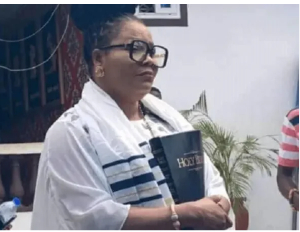Y-Check, Ghana has organised a day's workshop to present the results of the study and obtain feedback from the key informants and their suggestions on whether the idea of introducing and evaluating routine health check-ups for adolescents is worth taking forward.
Y-Check project according to Dr. Weobong, is about reaching out to adolescents aged 10 and 19 with the idea of introducing a routine health check-up in order to guarantee early detection and possible remedial measures that can be employed to help them.
Dr. Benedict Weobong, a senior lecturer of the School of Public Health, University of Ghana and the Principal Investigator (PI) speaking to journalist on the Y-Check projects, on the sidelines of the workshop, said Y-Check is basically a project aimed at introducing routine health check-ups and ultimately lead to the utilisation of health service provision among adolescents. "We know that all over the world, adolescents’ utilisation of health services are poor and we've been thinking about innovative ways to encourage same". "One way we thought about was routine health check ups" he explained. He further added that they have realised that, the WHO’s member countries provide health services for kids from aged 0 to 5 years, but after 5 years, that opportunity is curtailed. "And we think that, that is a challenge because the adolescence period is characterised with a lot of challenges and so that is the area we are looking at with the WHO to see whether it is possible to extend such regular check ups beyond age 5". He continued that, the main focus for routine health check ups is preventive so that, the health officials can pick up health conditions early enough and also provide remedial measure to assist adolescents.
The PI revealed that the research is a three country project which include Ghana, the others are Tanzania and Zimbabwe that are receiving funding from WHO. "We are going to contribute data to answer the following questions: Is it a good idea to introduce health check ups? If it is, how should they be done? And where should it be delivered? And who should deliver them?" He further added that, "the main focus of the workshop was to bring the key informants together to discuss the findings of data collected so far, through interacting, sharing of data and asking them what they think should be included in the routine health checkups programme".
When asked about how long the project may last, the Public Health Lecturer said, "The wheel of research also grinds slowly, research takes a while and this is the first step of a three step project". "This first step is just finding out". At the end of today we should be able to know how Y-Check should be like" he expounded. The second phase would be the Piloting of the programme where "The interventions we have gathered in this first phase is taken out and tested on the target audience to see whether it is working well or there are surprises" in order to find out other areas that may require some tweaking going forward. The third step is when "We shall know whether to roll out the programme or not". "This is where we can scientifically ascertain whether these checkups are helping adolescents or not" Dr. Weobong elaborated. He was quick to add that, if the project isn't improving adolescent health care then there was no need implementing the project at all. According to Dr. Weobong, when all the processes have been successfully implemented with positive outcomes, then the WHO, would add it to their guidelines for all countries to implement same. "We are looking at about 4 to 5 years in order to be convinced that Y-Check is something that countries should be doing" the senior lecturer posited.
The workshops was held at the Schools Of Business Guest House, UCC, Monday 13th July, 2020.
Dr. Eric Koka, Lecturer, Department of Sociology and Anthropology of the University of Cape Coast also speaking to a journalist said, he is one of the Y-Check project implementers in Cape Coast. He intimated that "The relevance of this is to ensure routine health checkups for adolescents in Cape Coast."The project would be implemented in Cape Coast" he added.
Responding to why Cape Coast was chosen for the project, the Medical Sociologist claimed that, the project implementers chose Cape Coast, because it is one of the urban areas (inner city), it also qualifies as a secondary city (ie. a city that is not the capital or largest city of a country). He further stated that "interestingly, the research is being conducted in three other countries in the whole world and Ghana happens to be one of them: Ghana, Tanzania and Zimbabwe. He further explained that "We are looking at adolescents between the ages of 10 and 19 years". He further added that "We have divided them into younger adolescents and older adolescents". "The younger adolescents are from ages 10 to 14 years and the older adolescents are from 15 to 19 years". He continued that these are the categories of adolescents they would be targeting if all goes well.
In concluding, Dr. Koka said after this key informants’ engagement, they were going to present their findings during a site meeting of all investigators from the other countries and develop strategies/interventions based on the findings from all the data collected so far. Dr. Koka also thanked other members of the team: Dr. Hannah B. Taylor-Abdulai and Dr. Franklin Glozah for their immense contributions towards the project thus far.
Regional News of Thursday, 16 July 2020
Source: d. c. kwame kwakye, contributor













